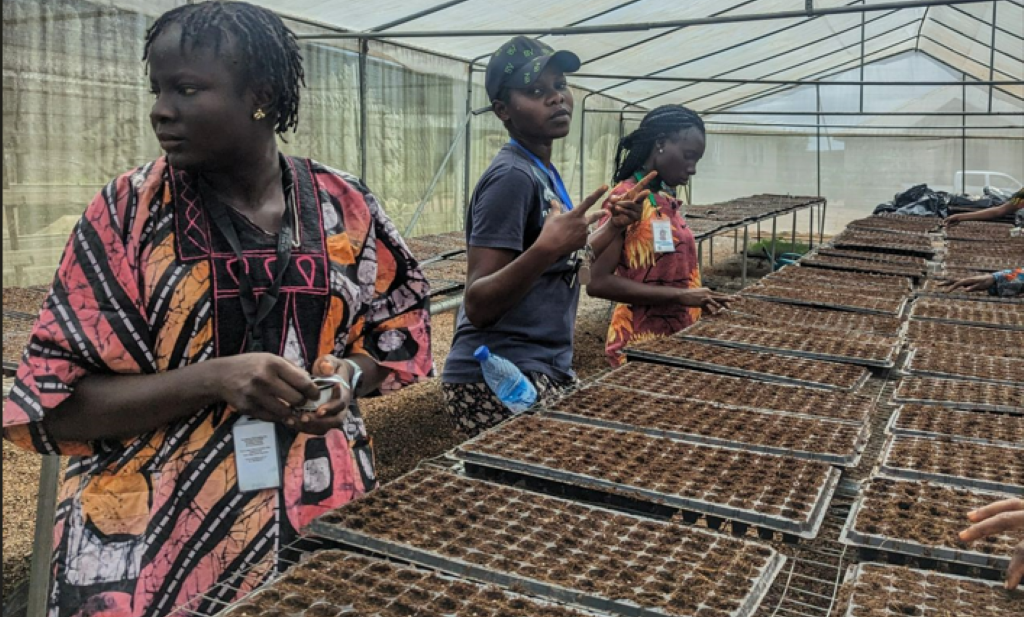Until recently, many intervention projects hardly considered the needs of women farmers (Gender insensitive), as assumption over the years had been that farmers' needs are inclusive, whereas in reality farmers' needs are most times not women farmers' needs. This is due to the gender blind approach employed for project planning and implementation, thus resulting in a low success rate.
In developing countries, women are faced with some typical challenges that are hinged on cultural norms traceable to the patriarchy system that are endemic to society. Till today, this system is still predominant where women are more engaged in reproductive and community activities, with little time for economic activities.
There have been several efforts to mainstream the issues around gender in order to reduce or eliminate these gaps, with some success stories, but there is still a lot of work to be done. One of the challenges is understanding unconscious bias, such as why should women farmers not have access and control over land for production? Why should women farmers not cultivate premium crops (like cocoa, timber, rubber, oil palm)? Why should women farmers not have access to sufficient credit and inputs? Why should women not be paid equally with men when the same quantity and quality of work is done? Why should pregnant women not be employed to do agricultural activities that are not dangerous to her health? Thinking through this could help us to gauge ourselves and reveal our bias.
In addition, there is still the prevalent culture of silence in our agrarian communities; in the gathering of men, women hardly had opinions. So, during stakeholders meetings, women hardly express their true opinion, rather they flow with what the men say and their needs are mostly not captured. This situation leads to skewed interventions where farmers' needs do not completely reflect women farmers' needs.
These and many situations have adversely affected the agricultural sector; in intervention design and implementation, including adoption process of technologies and innovations because the solutions are not inclusive. Therefore, there is a need to increase sensitisation training with development of appropriate content on issues around gender. People should move from unconscious bias to conscious bias, to conscious unbiased and to unconscious unbiased for us to make more noticeable progress in the sector and we need to have accurate data to make more informed decisions.
We cannot continue in the power play that continues to put the agricultural sector at disadvantages. We need to be more proactive to the needs of women farmers. Today is the best time to act.
Yours-in-Service
Babatunde
There have been several efforts to mainstream the issues around gender in order to reduce or eliminate these gaps, with some success stories, but there is still a lot of work to be done. One of the challenges is understanding unconscious bias, such as why should women farmers not have access and control over land for production? Why should women farmers not cultivate premium crops (like cocoa, timber, rubber, oil palm)? Why should women farmers not have access to sufficient credit and inputs? Why should women not be paid equally with men when the same quantity and quality of work is done? Why should pregnant women not be employed to do agricultural activities that are not dangerous to her health? Thinking through this could help us to gauge ourselves and reveal our bias.
In addition, there is still the prevalent culture of silence in our agrarian communities; in the gathering of men, women hardly had opinions. So, during stakeholders meetings, women hardly express their true opinion, rather they flow with what the men say and their needs are mostly not captured. This situation leads to skewed interventions where farmers' needs do not completely reflect women farmers' needs.
These and many situations have adversely affected the agricultural sector; in intervention design and implementation, including adoption process of technologies and innovations because the solutions are not inclusive. Therefore, there is a need to increase sensitisation training with development of appropriate content on issues around gender. People should move from unconscious bias to conscious bias, to conscious unbiased and to unconscious unbiased for us to make more noticeable progress in the sector and we need to have accurate data to make more informed decisions.
We cannot continue in the power play that continues to put the agricultural sector at disadvantages. We need to be more proactive to the needs of women farmers. Today is the best time to act.
Yours-in-Service
Babatunde
Related



